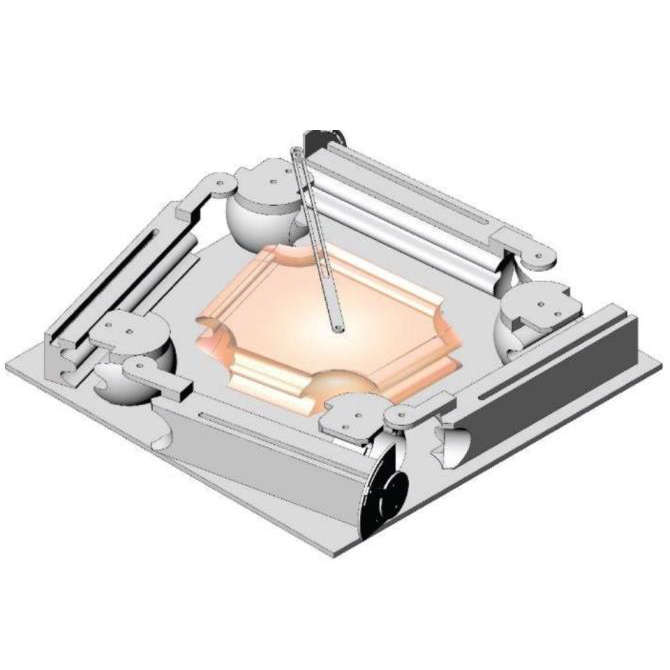Rethinking the Cast Glass Mould.
An Exploration on Novel Techniques for generating Complex and Customized Geometries.
DOI:
https://doi.org/10.7480/cgc.7.4662Downloads

Abstract
This paper explores two alternative mould fabrication technologies that allow for the casting of (solid) glass components with a great degree of freedom in shape and size and/or of a customized design, in a cost-efficient way. In specific, the paper discusses the research, design and experimental work conducted at TU Delft on 3D-printed sand moulds and adjustable, high-precision steel moulds. 3D-printed sand moulds can provide a high-accuracy, cost-effective solution for solid glass components of complex geometry and/or of customized design. Although this mould technique is already used for metal castings, it remains still unexplored in the field of glass casting. Accordingly, this paper presents the first experimental findings at TU Delft of this mould technology: mould samples using different binders and treated with various coatings for surface finishing are tested in the high temperatures anticipated in glass (kiln-)casting. Following, 3D-printed moulds are prepared for a given glass geometry and physical glass prototypes are made by kiln-casting. Adjustable metal moulds are another mould technique that offers a degree of freedom in the modulus of a structure. Essentially, components of different sizes and, to an extent, shapes can be generated by the same mould. Accordingly, the design principles and engineering of such a mould and the potential applications and limitations of this technology are discussed. As a proof of concept, an adjustable mould is made using 3D-printed PLA and laser-cut MDF. The mould is used for the generation of wax models of variable forms, which are used to kiln-cast glass prototypes by the lost-wax technique. Based on the findings on both presented mould technologies, guidelines are given on their suitability according to the production volume, the level of accuracy required and the complexity and variation of forms involved.
Published
Issue
Section
Architectural Design, Geometries & Lighting
Keywords:
cast glass, mould technology, glass mould, 3D printing, sand moulds, adjustable mould, structural glass, glass foorm, glass bricks, 3D-printed sandLicense
Copyright (c) 2020 Faidra Oikonomopoulou, Ivneet Singh Bhatia, Wilfried Damen, Felix Van Der Weijst, Telesilla Bristogianni

This work is licensed under a Creative Commons Attribution 4.0 International License.



